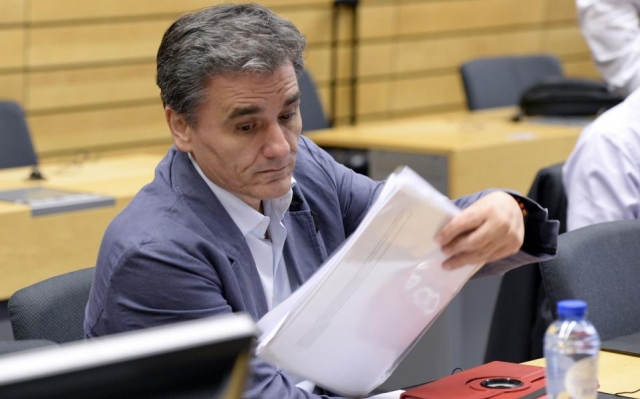photo www.kathimerini.gr
During the Eurogroup meeting, the partners demanded an immediate vote on the measures requested in advance. They also exerted pressure towards further austerity and breaking down of the proposed measures into detailed commitments. Although extremely tough, the negotiations were making some progress. The underlying issue is the lack of trust in the Greek government, especially after the referendum. Finance Minister Efklidis Tsakalotos faced a number of comments by his counterparts. What united the other side was their doubt of the ability and willingness of the Greek government to implement even those reforms, which were part of its own proposal. Compared with the past two weeks, the demands have snowballed. According to an official from the institutions, the talk is already about the next three-year bailout and a new €80 billion loan while it used to be about closing the current programme.

Several Member States expressed a preference that the IMF participate in the fresh bailout – if agreed. Tsakalotos apparently agreed. On top of that, Athens was requested to specify its proposals and, instead of keeping them on a piece of paper, lay them down a binding action plan to be implemented as fast as possible. That is, as a senior institutions representative pointed out, some of the measures should be voted as early as tomorrow. The Greek government will also have to somehow overcome the lack of trust overshadowing the talks.
All parties denied reports that during the meeting Wolfgang Schaeuble presented a plan for a five-year Grexit. Such a scenario is believed to have been discussed in German circles.
A pressing issue in urgent need of solution, which was discussed at the Eurogroup negotiating table, are the ECB bonds, which are due in nine days. The bank's CEO, Mario Draghi, voiced his concern over the systemic risk that might arise in case of failure to find a solution for this payment. German Finance Minister Schaeuble said that during the PSI (Private Sector Involvement, i.e. private creditors holding bonds) there had also been concerns about systemic risk, but ultimately there weren't any substantial losses.
The discussion touched on some concrete reforms as well, e.g. the application of OECD instruments. It had provoked some tensions in the Greek government over the past two years, especially some of the instruments such as the reform of the dairy and bakery markets, the liberalisation of the pharmacy regulations, liberalisation of the over-the-counter drugs, etc. Tsakalotos consented on the first three issues, but declined to go into drugs.
The discussions continued until one after midnight.